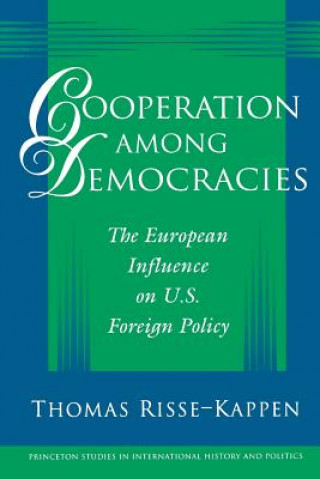
Doručenie
Nákupný poradca





Nehodí sa? Žiadny problém! U nás môžete do 30 dní vrátiť
 Darčekový poukaz
v ľubovoľnej hodnote
Darčekový poukaz
v ľubovoľnej hodnote
S darčekovým poukazom nešliapnete vedľa. Obdarovaný si za darčekový poukaz môže vybrať čokoľvek z našej ponuky.
Cooperation among Democracies
 Angličtina
Angličtina
 204 b
204 b
30 dní na vrátenie tovaru
Mohlo by vás tiež zaujímať


In exploring the special nature of alliances among democracies, Thomas Risse-Kappen argues that the West European and Canadian allies exerted greater influence on American foreign policy during the Cold War than most analysts assume. In so doing, he challenges traditional alliance theories that emphasize strategic interactions and power-based bargaining processes. For a better understanding of the trans-atlantic relationship, the author proposes that we instead turn to liberal theories of international affairs. Accordingly, liberal democracies are likely to form the 'pacific federations' described by Immanuel Kant or 'pluralistic security communities' as Karl W. Deutsch suggested. Through detailed case studies, Risse-Kappen shows that the Europeans affected security decisions concerning vital U.S. interest during the 1950-1953 Korean war, the 1958-1963 test ban negotiations, and the 1962 Cuban missile crisis - all during a span of time in which the U.S. enjoyed undisputed economic and military supremacy in the alliance. He situates these case studies within a theoretical framework demonstrating that the European influence on decision-making processes in Washington worked through three mechanisms: norms prescribing timely consultations among the allies; use of domestic pressures for leverage in transatlantic interactions; and, transnational and transgovernmental coalitions among societal and bureaucratic actors. The book's findings have important repercussions for the post-Cold War era in that they suggest the transatlantic security community is likely to survive the end of the Soviet threat.
Informácie o knihe
 Angličtina
Angličtina




 Ako nakupovať
Ako nakupovať






















